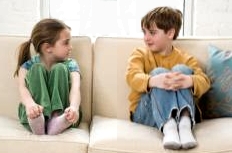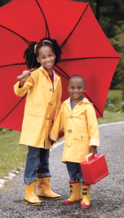Anxiety & Depression Help
Garden City Therapy LCSW
Garden City Therapy PLLC | daytime, evenings and weekends available
[email protected] 516 828 - 2622
233 7th Street. STE 200 Garden City, NY 11530
- Michelle Ambalu, lcsw
111 7th St. Suite 101 Garden City, NY 11530 Copyright © Michelle Ambalu Web Design, 2013
Tags: Therapist in Long Island, Therapist in Garden City NY, Therapist in Nassau County, Therapist for anxiety, Blue Cross Therapist, Magnacare therapist, Cigna therapist, Psychologist in Garden City, NY, Counselor in Garden City NY, Counselor in Long Island, Counselor in Nassau County, Counseling for anxiety, Child Therapist, Child Therapist in Long Island
Question & Answer with Michelle Ambalu, Lcsw
What importance does the role of a sibling play in a "broken" home?
During times of significant changes within or disruptions to the family dynamic, a sibling can often take on the role of the primary attachment figure during childhood particularly in regard to providing attunement and allowing for safe exploration as well as regulation at a time when the typical primary caregiver is less able to offer this; there are many stressors or changes that can lead to a temporary or enduring unavailability including but not limited to illness, time served, death, divorce, work, depression, substance abuse, etc.
In regard to a chaotic home environment siblings may care after one another though often children may take on polarized roles that can appear confusing or misleading. Many times one child in the family becomes what is called the 'identified patient"; this child is the one that is exhibiting symptoms viewed as problematic by others. Often that child is showing us the disturbance that is being disowned (typically unconsciously) by the entire family to allow for the illusion of or some level of functioning; the child absorbs the disturbance which manifests in behavioral issues or symptoms.
It is important to focus on the triggers leading to chaos rather than who is to blame. When a tornado rips through your town, you are the ones left with the signs of distress and all the pieces to pick up even though the tornado caused this; If we view family disturbance (tatters and chaos) as created by the tornado (trigger) for a moment, it is easier to do so. That family needs help processing the trauma, adjusting to the change, and obtaining the tools and resources to do so. When a family is unable to do this it is akin to them pretending/going through the motions as if the walls and furniture are still there (denial) or rigidly holding onto the idea that this is the way they are supposed to live often coming up with rationalizations. So when one child finally breaks these defenses either verbally or through manifested behaviors, the parent(s) become anxious and the other children follow suit in their defense.
With siblings there is a chance (provided that other factors are leading to this resilience) that siblings come together to try and break the defense. With a sibling there is the opportunity for reality checking and reassurance with one another similar to an employee having coworkers to debrief with regarding their employment or bosses.
How does age difference affect sibling bond or interdependence?
When a sibling is much older than another I often observe that the older sibling can become like a second parent to the younger sibling, or the younger sibling can be seen as a much greater threat given the developmental difference and time that has passed without the younger sibling. The longer something stays the same, and the older we get, the harder it can be to adjust to a major change. Sometimes the vast age difference leads to estrangement.
What role does teasing play in the development of sibling bonds?
Playful teasing allows for a healthy expression of fondness and a bit of aggression all in one and to see the impact we have on one another; it allows us to play with boundaries and is often a rite of passage on the way to belonging to a group which is why siblings can help us develop other peer relationships. Teasing can also be a good way to remedy or normalize a slightly clumsy social interaction. If the aggressive/competitive component is taken too far with teasing this can of course lead to difficulties with other peers as well.
Is sibling rivalry important to sibling relationship and social development? Or is it a detriment?
I think it can go both ways but healthy rivalries can transfer to non-domestic relationships in learning how to compete for what we want and cope with defeat or slights.
Is it arguable that a relationship between siblings is more important than the relationship between parent and child? (in a non-abusive, relatively healthy, home environment).
Research lags far behind in regard to the importance of siblings as compared to parents and the importance is underestimated.
Do you think children with siblings are at any sort of developmental advantage over only children?
Early on it has been observed that a child can learn to do a new task faster when another child a bit older teaches them as opposed to an adult; this can be attributed to the motivation of the play bond as well as the unique communication.
What areas of a person's development and/or identity do siblings impact the most (perhaps more than anyone else in a person's life)?
Siblings can teach you things that parents cannot. Parents focus on rules/appropriateness while sibling will help with social norms/unspoken rules through modeling. A child who has no siblings/cousins as well as limited social activity with peers is often understandably bewildered as to why he/she had a social blunder and furthermore does not have a peer on hand to process it which would have helped them make some helpful changes or to shrug it off. It is just as important to have a peer give you some tips as it is for them to normalize what happened simply by saying something to the effect of “Yeah… been there, done that… I remember when that happened to me, it was really hard - but tomorrow it will blow over or they'll move on to something else”. It usually helps whether it is ‘true’ or not.
- Michelle Ambalu, lcsw
(click above for article)









